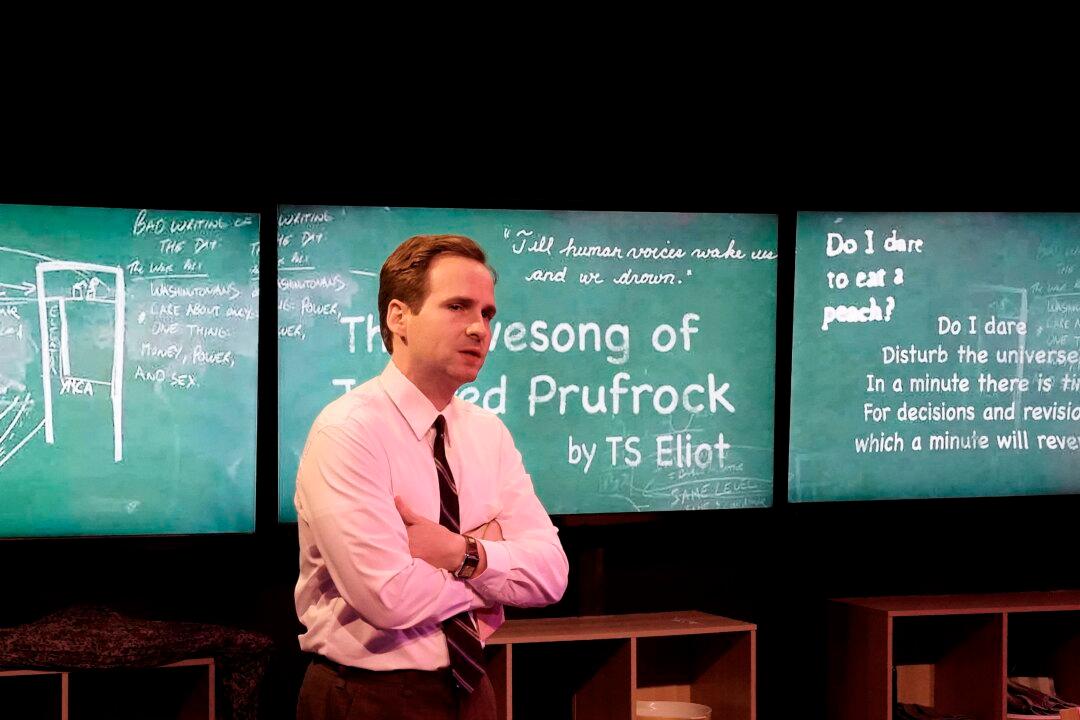NEW YORK—Vivian Neuwirth’s drama “Mr. Toole” is a fictionalized take on the real-life story of John Kennedy Toole (Ryan Spahn), author of ”A Confederacy of Dunces,” which won the 1981 Pulitzer Prize for Fiction. Spanning the years 1968–1981, it explores how the most tragic of events can bring some light into the world.
Mr. Toole, known to all as “Ken,” is a passionate and sensitive man who finds himself suffocated by his lot in life. He teaches poetry at the all-female St. Mary’s Dominican College in New Orleans and lives with his parents just a short walk away. It’s a job that he hates more and more every day, especially as he’s faced with rows and rows of young women, most of whom don’t even make the effort to understand the meaning of poetry.





